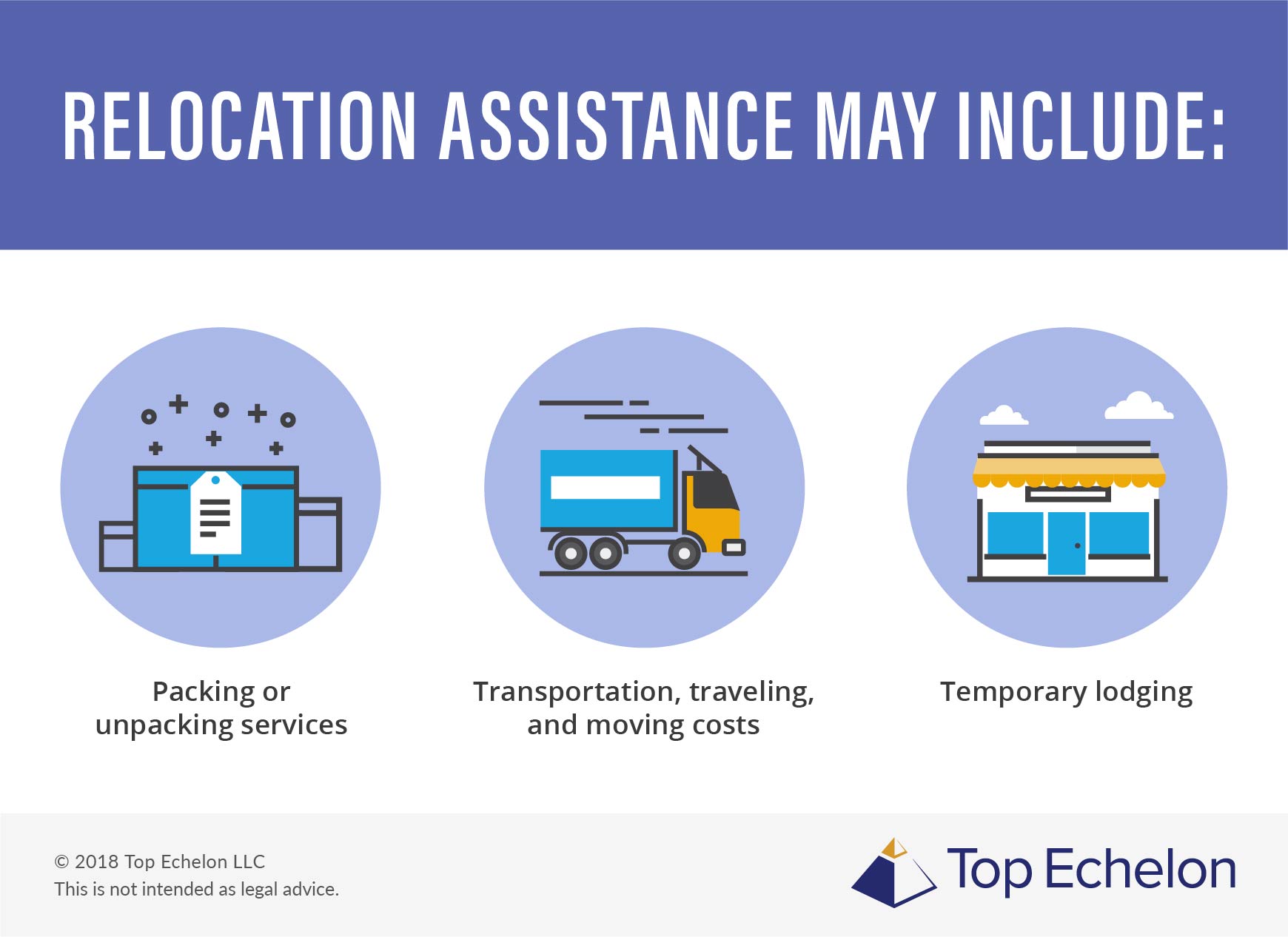Relocating for a new position can be a great opportunity for your candidates and clients. However, it is also a big commitment for both parties. Relocation assistance allows for a smoother transition. But, how do you know what clients should include as relocation support?
What is relocation assistance?
Relocation assistance is a benefit a business may offer candidates to assist them in moving to a new city or state for work.
Your client may be willing to help pay to relocate a candidate depending on their available budget, policy, and circumstances.
Why offer relocation assistance?
A small number of candidates are willing to relocate for a position. According to one source, 10% of job seekers relocated for work during the first six months of 2018. To get top talent, you may need to consider offering relocation assistance.
If a candidate is on the fence about a position, relocation assistance may make relocating more attractive. Offering to assist a candidate with moving expenses helps the candidate while also improving your client’s employer brand.
Ask candidates questions about relocating during the interview process. Be sure to inform the candidate of the possibility of relocation. And, make sure that it’s a good fit for both client and candidate before making any moves.
What to include in relocation assistance
Approximately 63% of companies offer candidates relocation assistance or packages. This means more than half of companies are offering to assist or pay candidates for relocation. A relocation package typically includes the client paying for various moving expenses when a candidate relocates for work.
When your client creates a relocation package, they will need to consider the position type and how far the move will be for the candidate. Expenses will likely differ if the candidate is a new college graduate vs. a senior level manager. For example, you may offer a college graduate a one-time $5,000 bonus to cover moving expenses.
Although this can vary from client to client, here are three things to consider when offering relocation assistance for candidates.
1. Home expenses
Employers relocating candidates may take responsibility for costs related to terminating a lease or selling a home. Some companies choose to give a lump-sum to candidates to cover home expenses. Or, they may offer to reimburse the candidate for out-of-pocket moving expenses.
Clients may also agree to pay or reimburse candidates for closing costs on a home or a real estate agent’s commission.
2. Storage and transportation
In order to relocate, the candidate may need to temporarily store some of their personal belongings and will need a way to transport them to their new home.
Some relocation packages include hiring a moving company to assist the candidate. Packages may include shipping large items, like furniture. Other packages may include covering smaller expenses using per diem pay, such as gas costs.
3. New residence
Starting a new job is stressful enough without moving. Recruiters or clients may consider providing real estate agents or other professionals to make the moving process quicker and easier for the candidate.
Some companies will also provide an allowance for temporary housing, offer a relocation stipend, or pay for utility hook-up costs when a candidate moves to a new apartment or house.
Questions to ask
Questions for clients to consider while creating a relocation package include:
- Will the candidate need assistance moving?
- How much time should we give the candidate to move?
- Does the candidate need to sell their current home?
- Will their spouse need employment?
As the recruiter, you should discuss your client’s questions with the candidate. Follow up with your client on the candidate’s responses to help your client build a relocation package. Keep notes in your recruiting software about the candidate’s responses.
Negotiation
Depending on the candidate, position, and client’s company policy, you might be able to negotiate a relocation assistance agreement. Your client may ask you to handle the relocation assistance negotiation process for them.
While negotiating relocation assistance with a candidate, discuss what costs will be covered (e.g., transportation or temporary housing), how long the moving process should take, and the candidate’s responsibilities.
Create a written agreement including all relocation expense information discussed. You will want to include the amounts or types of assistance agreed on and the time frame in the agreement.









